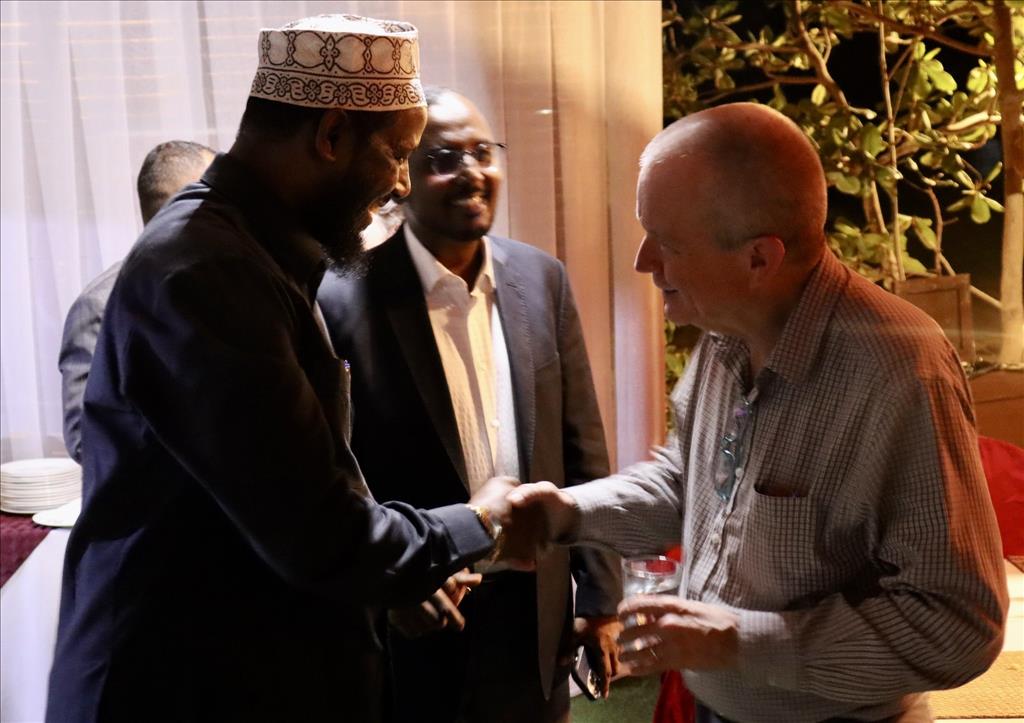(MENAFN- SomTribune) In somalia , on October 14, 2017, terrorists detonated a two-truck bomb near Mogadishu's Hodan district, killing at least 587 people. It was a massive explosion. The Safari Hotel collapsed. Forensic investigators believe the truck carried two tons of explosives.
While Somalia is no stranger to violence, the 2017 attack remains the deadliest attack in its history. It might have been even worse: Somali police heroically intercepted the truck before it reached the airport zone home to most foreign embassies and many international businesses.
Al-Shaabab, a Somali terrorist group that pledged allegiance to the Al Qaeda affiliate, was behind the bombing. Mukhtar Robow Ali was the group's co-founder and, for several years, was its spokesman and No. 2. His tenure coincides with the planning of al-Shabaab's 2013 attack on the Westgate Mall in Nairobi. His terrorist involvement led the State Department in 2012 to issue a $5 million bounty for information leading to his arrest.
Robow laid down his weapons and left Al-Shaabab after finding himself on the losing end of a power struggle within the organization. While the Department lifted the reward in 2017, the U.S. Treasury Department continues to list him as a specially designated national. The previous Somali government placed him under house arrest, but Hassan Sheikh Mohamud, Somalia's current president, appointed him to his cabinet as minister of Islamic Affairs.
Robow's inclusion in the government might not be a bad thing. It shows Al-Shaabab terrorists that there is an off-ramp other than to end their days in a shootout or as a suicide bomber. Nor is Somalia the only government that makes space for terrorists who seek to come in from the cold.
Qais Khazali led the Iran-trained Special Groups in Iraq from June 2006 until British forces captured him nine months later. Today, he leads Asa'ib Ahl al-Haq, a political movement represented in the current Iraqi cabinet that the State Department designated a terrorist group in January 2020. Khazali remains a specially designated global terrorist but also seeks to come in from the cold. For good reason, Washington may not believe him. U.S. Ambassador Alina Romanowski refuses to attend any event in which Khazali might be present. She certainly does not fete him, let alone dine with him.
Larry André, Jr., shows no such qualms. While he boycotts Somaliland, the most democratic state in the Horn of Africa and one of the only two countries in Africa to choose Taiwan over China, in recent days he has not only met robow but also hosted him at an iftar dinner .
André shows poor judgment and, while retiring, should face immediate recall and demotion just as a U.S. general guilty of misconduct and poor judgment would. As J. Peter Pham, a former State Department special envoy for Africa and among Washington's top intellectual presences on Africa, tweeted sarcastically,“I am sure that the families of #USA victims of #AlShabaab terrorism take great comfort in knowing that their tax dollars paid for a meal for the group's co-founder.”
Not only American victims should feel that way. Millions of Somalis who have lost loved ones in the country's violence may ask why a representative of the United States would so normalize a man responsible for so much bloodshed. As Pham asks of the diplomats involved,“Have they no shame?”
Secretary of State Antony Blinken should explain André's action before Congress. Embassy officials involved in planning the event who did not use the dissent channel to object should face reassignment due to lost confidence.
The State Department's Somalia policy is off-the-rails. Under Blinken's supervision, the embassy promotes China over Taiwan, kleptocracy over democracy, selection over election, and dysfunction over development. In addition, André has prioritized his own personal whims over U.S. laws such as the 2023 National Defense Authorization Act. To host a man responsible in part for Somalia's worst bombing, however, takes the cake.
By Michael Rubin
American Enterprise Institute




















Comments
No comment